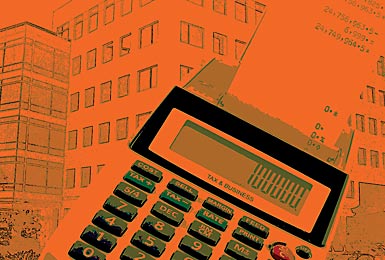The New Lease Accounting Paradigm
New lease accounting rules will revise how all businesses account for property. Here's how to best prepare for the changes.
Winter 2011

The draft, known as the Exposure Draft, is the latest step in a lengthy process to require capitalization of all real estate and equipment leases on balance sheets by recognizing the rights and obligations of lessees. Although a 120-day period of public comment follows the Exposure Draft's release, the regulation's core elements will probably not change. A final standard is expected to be issued in mid-2011, with an effective date yet to be determined, but likely no sooner than January 1, 2013.
The perceived lack of transparency regarding off-balance sheet obligations and the complexity of current lease accounting are driving pressure to revamp the three-decades-old leasing standard.
Today, businesses choose from two methods to classify leases: operating or capital leases. Under the new approach, organizations will recognize a liability for obligations to pay rent and a corresponding asset representing the right to use the underlying leased property. Placing the full lease obligation on the balance sheet - and the resulting negative drag on corporate earnings - will dramatically affect companies' perceived financial performance. Changes in financial reporting will be daunting and cumbersome, as companies must capture new data to support the capitalization of obligations based on internal evaluation of occupancy practices and property use, then regularly re-evaluate those assumptions and adjust income statements and balance sheets accordingly.
How Will Companies Respond?
It's still unknown how companies will react and how significantly they will alter the use of leases and desired lease terms. Companies may react by seeking shorter-term leases or favoring ownership if property use goes on the balance sheet anyway. The changes will certainly push companies to articulate and validate the reasons for leasing, such as flexibility in occupancy and preservation of capital for core business activities.
Given the principles-based approach of the new leasing standard, certain transactions, such as sale-lease backs and build-to-suit arrangements, could be easier to execute. Most importantly, they may be achieved with better economic terms for tenants and better suited to their true business objectives. While the standard setters' concerns about financial engineering of leases frame much of the new approach, these transactions may better align with corporate goals.
The new standard will disproportionately affect business sectors that rely heavily on real estate to generate revenue. Obvious industry candidates are retail, but commercial banking, with its substantial customer service operations, will also see effects. Retailers operating on notoriously thin margins will see net margins erode substantially. The reported increase in occupancy expense for retailers will be exacerbated by a potential tendency to capitalize renewal periods and recognize higher rents under percentage sale arrangements. Although the transition date has not been released, the sweeping changes in financial reporting will prompt companies to begin planning their adaptations immediately. The immediate demands will be to:
• Assess the suitability of existing lease administration and reporting systems to accommodate the new accounting requirements;
• Plan for enhancement of lease abstracts and processes for additional data capture for existing leases; and
• Create standards for assessment of obligations for lease term, net lease expenses, and contingent rent that will survive audit review.
Project Announcements
Ashworth Bros. Upgrades Winchester, Virginia, Production Operations
11/15/2025
Feast & Fettle Plans Elkridge, Maryland, Production-Distribution Operations
11/15/2025
First Quality Retail Services Expands Mifflin County, Pennsylvania, Manufacturing Operations
11/15/2025
Meta Plans Beaver Dam, Wisconsin, Data Center Operations
11/15/2025
Modine Expands Buena Vista, Virginia, Operations
11/15/2025
Socomec Plans Suwanee, Georgia, Manufacturing Operations
11/15/2025
Most Read
-
2025’s Top States for Business: How the Winners Are Outpacing the Rest
Q3 2025
-
Rethinking Local Governments Through Consolidation and Choice
Q3 2025
-
The Compliance Reckoning Is Here
Q3 2025
-
Around the Horn: Data Center Supply Chains — What's Next?
Q3 2025
-
First Person: Filter King’s Expansion Playbook
Q3 2025
-
Rethinking Auto Site Strategy in the Age of Tariffs and Powertrain Shifts
Q3 2025
-
Lead with Facts, Land the Deal
Q3 2025